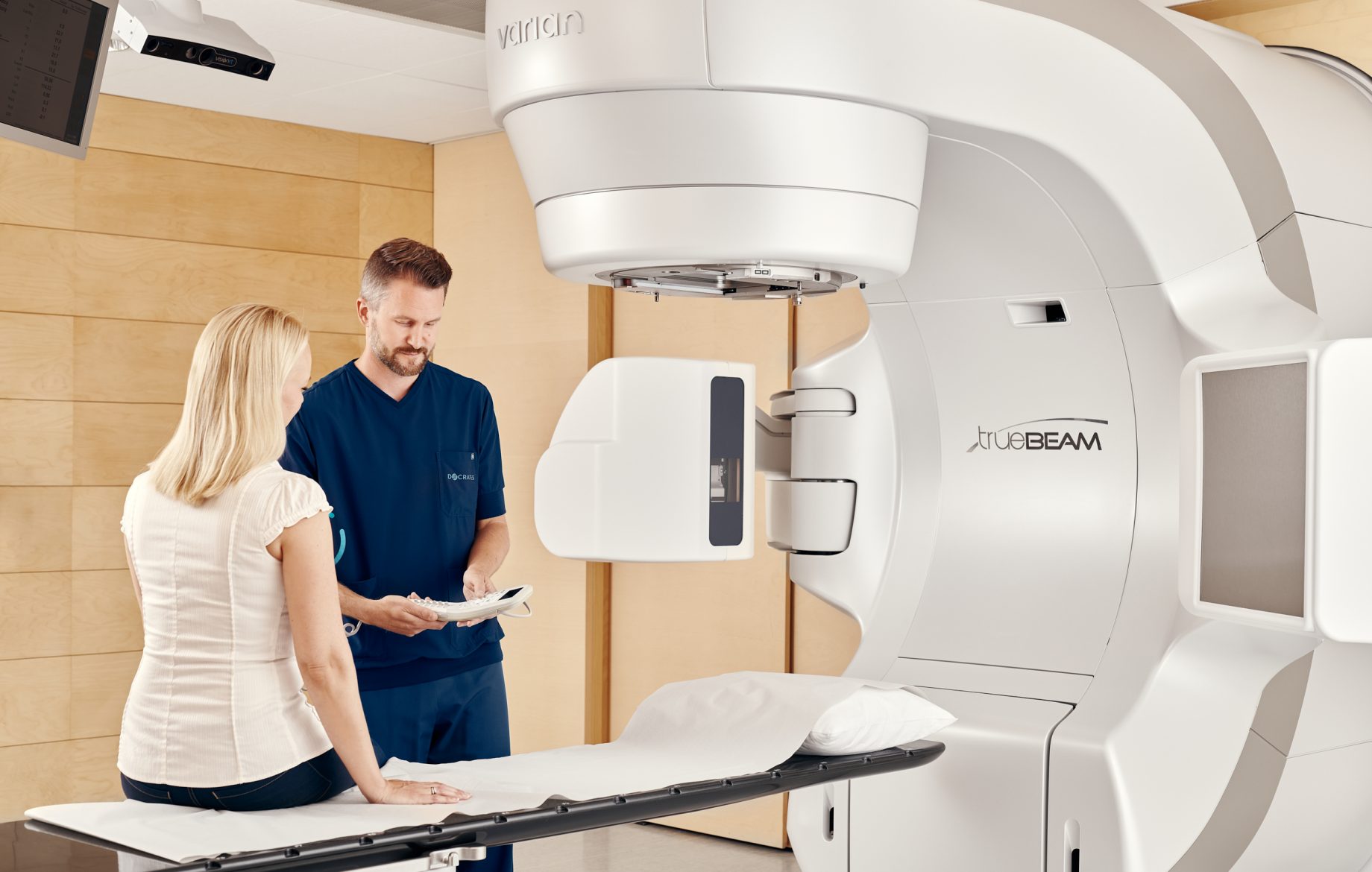The temporary technical problem in the data network connections
A temporary technical problem occurred in the data network connections of Docrates Cancer Center. We apologise for any delays caused...
Read moreMon–Fri 8–16

After surgery, breast cancer is often treated with radiation therapy and some form of medication. You will receive an individual recommendation for the treatment you need, based on the risk of recurrence and an assessment of the suitability and effectiveness of different treatments.
Many patients receive a recommendation for some form of medication after the breast cancer surgery. The recommendation is made individually on the basis of latest research data and national and international treatment guidelines. Depending on each individual case, the chemotherapy will include cytostatic chemotherapy and/or endocrine therapy (hormonal therapy) and also biological drugs.
Cytostatic chemotherapy usually involves six sessions of intravenous chemotherapy, administered at three-week intervals. The risk of cancer recurrence and patient’s expected tolerance to the treatment affect which medication is selected and how often it is given.
Endocrine therapy is often referred to as hormonal therapy. The purpose of endocrine therapy is to block the effects of female sex hormone on any hormone-dependent cancer cells. These therapies are referred to as targeted therapy and they are only suitable for women whose cancers are estrogen-receptor positive. The treatment is given in tablet form and the tablets are usually taken daily for five years, but nowadays more and more patients get a subscription for as long as ten years.
In addition to chemotherapy, also medications called tratsusumabi and pertutsumabi are used as adjuvant therapy for HER-2 positive breast cancer. These medications are administered either intravenously or subcutaneously. HER-2 medication is usually taken every three weeks for a year.
All the medications are associated with varying side effects. However, in most cases adverse effects can be effectively prevented or reduced with appropriate supportive actions and medications. The need for hormonal therapy is also often reconsidered during cancer follow-up with your own doctor.
Appropriate chemotherapy has traditionally been selected based on tumor incidence and biological properties of the tumor. However, recent studies have revealed that by doing so a significant proportion of women with hormone-sensitive breast cancer receive unnecessary chemotherapy.
The Oncotype DX gene test on cancerous tissue, which looks at 21 genes, helps to better identify those who will not benefit from chemotherapy. Thus, ineffective treatments with unnecessary life quality loss can be avoided.
The Oncotype DX gene test is utilized at Docrates Cancer Center, if a doctor together with a patient considers it necessary. The need for the test is already considered prior to breast cancer surgery so that the test result can be utilized in post-operative care planning. At Docrates Cancer Center the test is offered to the patient when she is known to belong to a group where the benefit of chemotherapy is uncertain.
Breast-conserving surgery is almost always followed by subsequent radiotherapy. Radiotherapy is also recommended for many women who have undergone breast removal. Radiotherapy significantly reduces the risk of localised cancer recurrence and prolongs survival. If cancer cells are detected in the lymph nodes, radiotherapy of the armpit and the supraclavicular fossa above the clavicle is also recommended. Postoperative adjuvant radiotherapy usually takes three weeks. Treatment is administered five days a week and each session takes about 15 minutes.
The information provided by advanced imaging studies, together with cutting-edge radiotherapy equipment, allows us to minimise the adverse effects of treatment and yet deliver high dose of radiation to the tumor.
A great advance in breast cancer radiotherapy is the so-called DIBH (Deep Inspiration Breath Hold) technique. At Docrates Cancer Center, the goal is to perform the radiotherapy always with the DIBH technique, regardless of whether the cancer is in the left or right breast.
If the DIBH is utilized, the patient first draws air into the lungs and then holds his/her breath briefly during the actual radiation. After a moment of free breathing, the radiation continues while holding breath. By doing so, the radiation dose to the healthy tissues such as lungs, heart and the coronary arteries is reduced, and thereby the risk for both acute and delayed adverse effects is reduced as well. Nowadays special attention is paid to the risk of delayed side effects as more and more breast cancer patients survive the decease.
At Docrates Cancer Center, radiotherapy is always planned by a team consisting of a doctor, a radiographer and a medical physicist.
If the risk factors give rise to suspicions that the cancer may have spread (metastasised), we will stage the cancer before making a final treatment decision.
A temporary technical problem occurred in the data network connections of Docrates Cancer Center. We apologise for any delays caused...
Read more
Hannu Nurmio was aware that prostate cancer is the most common cancer in older men. However, after the diagnosis was confirmed,...

Early detection of colorectal cancer is crucial for successful treatment. If diagnosed early, up to 90% of cancers can be...

Docrates Cancer Center is the first service provider in the Nordic region to launch a new experimental alpha radiation treatment...
Contact us!
Mon-Thu 8:00-18:00, Fri 8:00-16:00
